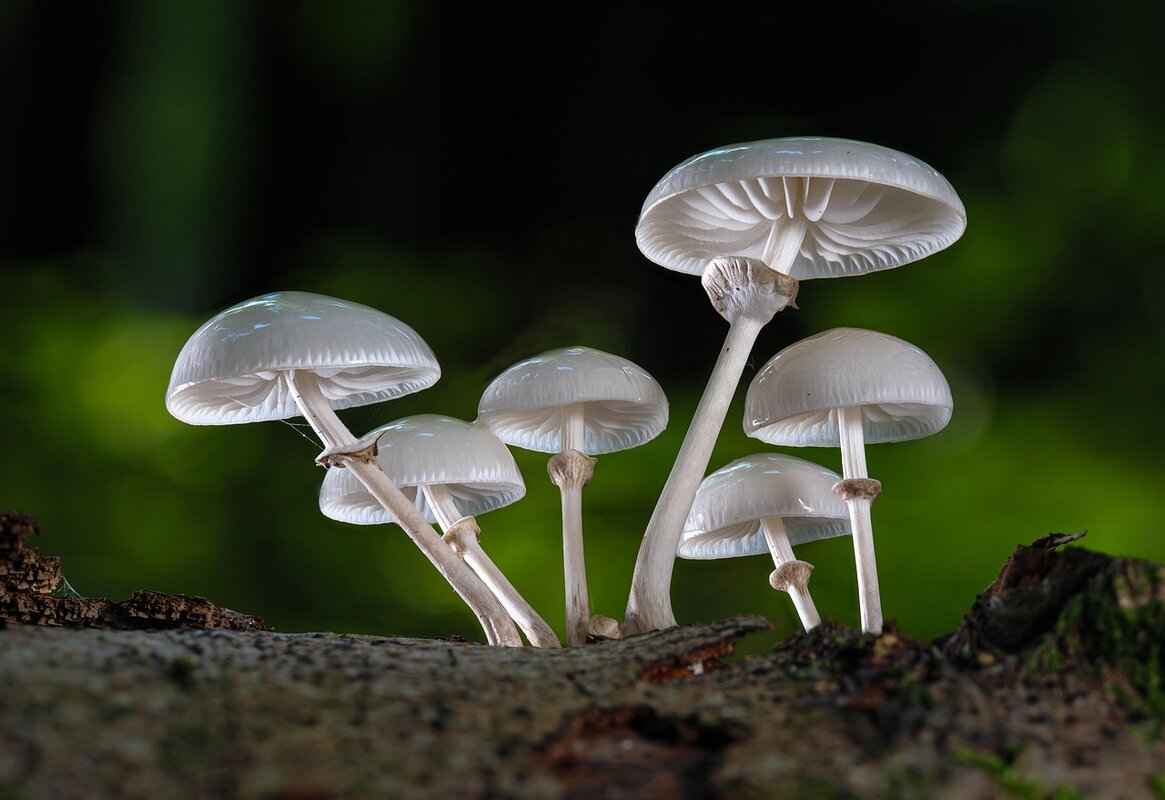Shiitake mushrooms, scientifically known as Lentinula edodes, are not only a popular ingredient in various cuisines but also a remarkable source of health benefits, particularly for boosting the immune system. This article delves into the nutritional profile of shiitake mushrooms, their immune-boosting capabilities, and how they contribute to overall wellness.
Natively found in East Asia, shiitake mushrooms are renowned for their rich flavor and numerous health benefits. They contain essential vitamins and minerals, including vitamin D, B vitamins, and minerals such as copper and selenium. These nutrients play a crucial role in maintaining a healthy immune system.
The immune-boosting properties of shiitake mushrooms can be attributed to their high levels of polysaccharides, particularly lentinans. These compounds are known to stimulate the activity of immune cells, enhancing the body’s ability to fend off infections and illnesses.
- Polysaccharides: These complex carbohydrates enhance immune function by activating immune cells.
- Beta-glucans: A type of soluble fiber that may lower cholesterol levels and improve heart health.
- Ergothioneine: An antioxidant that protects cells from damage and supports overall health.
Adding shiitake mushrooms to your meals is simple and delicious. They can be:
- Added to stir-fries for a savory flavor.
- Incorporated into soups for added nutrition.
- Used in salads to provide a unique texture and taste.
Beyond immune support, shiitake mushrooms have a variety of health benefits. They are known to:
- Support cardiovascular health by helping to lower cholesterol levels.
- Exhibit anti-inflammatory properties, which can reduce the risk of chronic diseases.
- Possibly have anti-cancer effects, as research indicates they may inhibit tumor growth.
While shiitake mushrooms are generally safe for most individuals, there are some risks to be aware of:
- Allergic reactions: Some people may experience skin rashes or digestive issues after consuming shiitake mushrooms.
- Digestive discomfort: Eating large quantities may lead to gastrointestinal distress.
When choosing shiitake mushrooms, look for:
- Firm, plump caps that are free from blemishes.
- A rich, dark color which indicates freshness.
To store shiitake mushrooms, keep them in a cool, dry place. This will help maintain their freshness and nutritional value.

What Are Shiitake Mushrooms?
Shiitake mushrooms, scientifically known as Lentinula edodes, are a popular edible fungus that has been cultivated in East Asia for centuries. Renowned for their rich, savory flavor and meaty texture, these mushrooms have transcended culinary boundaries and are now celebrated worldwide. However, their appeal goes beyond taste; shiitake mushrooms are also recognized for their impressive nutritional profile and numerous health benefits, particularly in supporting the immune system.
Natively found in the forests of East Asia, shiitake mushrooms thrive on decaying wood, making them a vital part of their ecosystem. They are typically brown with a broad cap and have a distinctive umami flavor that enhances various dishes, from stir-fries to soups. Beyond their culinary uses, shiitake mushrooms are packed with essential nutrients, including vitamins B and D, minerals like selenium and copper, and a variety of bioactive compounds.
The immune-boosting properties of shiitake mushrooms can be attributed to their high concentration of polysaccharides, particularly lentinans. These complex carbohydrates are known to enhance the activity of immune cells, such as macrophages and natural killer cells, which play a crucial role in defending the body against infections and diseases.
- Polysaccharides: These compounds stimulate the immune system and enhance its ability to combat pathogens.
- Beta-glucans: Found in the cell walls of shiitake mushrooms, they are known for their immune-modulating effects.
- Ergothioneine: A powerful antioxidant that protects cells from oxidative stress and supports overall immune health.
Among the polysaccharides present in shiitake mushrooms, lentinans are particularly noteworthy. Research has shown that lentinans can stimulate immune cell proliferation and enhance their activity, thereby improving the body’s defense mechanisms. This makes shiitake mushrooms an excellent addition to a diet aimed at boosting immunity.
Shiitake mushrooms are also rich in antioxidants, which play a vital role in neutralizing free radicals in the body. By reducing oxidative stress, these antioxidants help maintain cellular integrity and support the immune system. Notably, the presence of ergothioneine further enhances their protective effects, promoting longevity and vitality.
Adding shiitake mushrooms to your meals is simple and versatile. Here are a few ideas:
- Add them to stir-fries for a savory twist.
- Include them in soup recipes for added depth of flavor.
- Enjoy them raw in salads to retain their nutritional benefits.
Beyond their immune-boosting properties, shiitake mushrooms offer a range of health benefits:
- Cardiovascular support: They may help lower cholesterol levels and improve heart health.
- Anti-inflammatory properties: Compounds in shiitake mushrooms can reduce inflammation in the body.
- Potential anti-cancer effects: Some studies suggest that shiitake mushrooms may inhibit tumor growth.
While shiitake mushrooms are generally safe for consumption, some individuals may experience allergic reactions or digestive issues. It is essential to be aware of these potential risks.
Some people may develop an allergy to shiitake mushrooms, resulting in symptoms such as skin rashes or gastrointestinal discomfort. It is advisable to start with small amounts if you are trying shiitake mushrooms for the first time.
When selecting fresh shiitake mushrooms, look for firm, plump caps with a rich color. Store them in a cool, dry place, preferably in a paper bag, to prolong their shelf life and maintain their health benefits.

How Do Shiitake Mushrooms Boost Immunity?
Shiitake mushrooms have gained recognition not only for their culinary uses but also for their remarkable health benefits, particularly their ability to enhance the immune system. This article delves into the mechanisms through which shiitake mushrooms boost immunity, shedding light on their nutritional components and how they can be effectively incorporated into a healthy diet.
The immune-boosting properties of shiitake mushrooms are primarily attributed to their high content of polysaccharides, especially a unique type known as lentinans. These compounds play a crucial role in enhancing the body’s immune response. Research indicates that lentinans can stimulate the activity of various immune cells, including macrophages and natural killer (NK) cells, which are vital for defending against infections.
Shiitake mushrooms also contain beta-glucans, another form of polysaccharide that has been shown to activate immune cells and improve their function. These bioactive compounds work synergistically to bolster the body’s defenses, making shiitake mushrooms a potent ally in the fight against pathogens.
- Polysaccharides: These complex carbohydrates are known for their immune-enhancing properties.
- Beta-glucans: Found in the cell walls of shiitake mushrooms, they help modulate immune responses.
- Ergothioneine: An antioxidant that protects cells from oxidative stress, further supporting immune health.
These compounds not only improve immune function but also help the body manage inflammation, which is crucial for maintaining overall health.
In addition to their polysaccharide content, shiitake mushrooms are rich in antioxidants. These substances help neutralize free radicals in the body, reducing oxidative stress that can compromise immune function. By promoting cellular health and longevity, antioxidants contribute to a more resilient immune system.
Adding shiitake mushrooms to your meals is simple and delicious. Here are a few ideas:
- Add them to stir-fries for a savory flavor and nutritional boost.
- Include them in soups and broths to enhance taste and health benefits.
- Try them raw in salads for a crunchy texture and fresh flavor.
Cooking shiitake mushrooms can enhance their flavor while preserving their beneficial properties, making them a versatile ingredient in various dishes.
Beyond their immune-boosting effects, shiitake mushrooms offer numerous other health benefits:
- Heart Health: They may help lower cholesterol levels and improve circulation.
- Anti-Inflammatory Properties: Their compounds can reduce inflammation throughout the body.
- Potential Anti-Cancer Effects: Research suggests that shiitake mushrooms may inhibit tumor growth.
These benefits contribute to overall wellness, making shiitake mushrooms a valuable addition to a balanced diet.
While shiitake mushrooms are generally safe for most people, some may experience allergic reactions or digestive issues. It is important to be aware of these potential risks, especially for those new to consuming mushrooms.
In summary, shiitake mushrooms are not only a flavorful addition to meals but also a powerhouse of nutrients that can significantly enhance immune function and overall health. Their rich content of polysaccharides, antioxidants, and other beneficial compounds makes them a valuable asset in maintaining a healthy lifestyle.
Key Compounds in Shiitake Mushrooms
Shiitake mushrooms are not only a culinary favorite but also a treasure trove of bioactive compounds that contribute significantly to their health benefits. These compounds play a crucial role in enhancing the immune system and promoting overall well-being. This section will delve into the key compounds found in shiitake mushrooms and their respective health benefits.
- Polysaccharides: Among the most notable compounds in shiitake mushrooms are polysaccharides, particularly lentinans. These complex carbohydrates are well-known for their ability to stimulate the immune system. Research indicates that lentinans can enhance the activity of immune cells, thus improving the body’s ability to fend off infections and diseases.
- Beta-Glucans: Another vital component found in shiitake mushrooms is beta-glucans. These naturally occurring polysaccharides have been shown to modulate immune responses. They can activate macrophages and other immune cells, thereby increasing the body’s defense mechanisms against pathogens.
- Ergothioneine: Shiitake mushrooms are also rich in ergothioneine, an antioxidant amino acid that protects cells from oxidative stress. This compound helps to maintain cellular health and integrity, which is essential for a robust immune system.
- Vitamins and Minerals: In addition to the bioactive compounds, shiitake mushrooms are a good source of essential vitamins and minerals such as vitamin D, vitamin B6, and copper. These nutrients are vital for various bodily functions, including immune regulation and energy production.
The combination of these compounds makes shiitake mushrooms a powerful ally in supporting immune health. By incorporating shiitake mushrooms into your diet, you can harness their natural properties to enhance your body’s defenses.
In culinary applications, shiitake mushrooms can be enjoyed in various dishes. They are commonly used in stir-fries, soups, and salads, providing not only flavor but also a wealth of nutrients. The versatility of shiitake mushrooms allows them to be easily integrated into different cuisines, making them an accessible option for anyone looking to boost their health.
Furthermore, the health benefits of shiitake mushrooms extend beyond just immune support. Their anti-inflammatory properties contribute to overall wellness, potentially reducing the risk of chronic diseases. As research continues to explore the full extent of these benefits, shiitake mushrooms remain a popular choice for health-conscious individuals.
In summary, the key compounds in shiitake mushrooms, including polysaccharides, beta-glucans, and ergothioneine, play a significant role in promoting health and enhancing immunity. Their rich nutritional profile makes them an excellent addition to a balanced diet, supporting not only immune health but overall well-being.
Polysaccharides: The Immune Enhancers
Polysaccharides are complex carbohydrates that play a vital role in enhancing the immune system. Among these, the lentinans found in shiitake mushrooms are particularly noteworthy for their health benefits. This article delves into how these polysaccharides function as immune enhancers and their significance in maintaining overall health.
Lentinans, a type of polysaccharide found predominantly in shiitake mushrooms, have been studied extensively for their ability to stimulate the immune system. These compounds activate various immune cells, including macrophages and natural killer (NK) cells, which are crucial for identifying and eliminating pathogens. By enhancing the activity of these cells, lentinans bolster the body’s defense mechanisms against infections.
The mechanism by which polysaccharides like lentinans enhance immune function is multifaceted. They interact with immune cell receptors, triggering a cascade of biological responses that lead to:
- Increased cytokine production: Cytokines are signaling molecules that help regulate immune responses. Enhanced cytokine levels can lead to a more robust immune reaction.
- Enhanced phagocytosis: This is the process by which immune cells engulf and destroy pathogens, improving the body’s ability to combat infections.
- Activation of T-cells: T-cells are essential for adaptive immunity, and their activation is crucial for long-term immune memory.
Beyond their immune-boosting properties, polysaccharides in shiitake mushrooms contribute to various other health benefits:
- Antioxidant Properties: Shiitake mushrooms are rich in antioxidants that help neutralize free radicals, reducing oxidative stress and supporting overall health.
- Anti-Inflammatory Effects: The anti-inflammatory properties of these mushrooms can help alleviate chronic inflammation, which is linked to numerous health issues.
- Potential Anti-Cancer Effects: Some studies suggest that lentinans may inhibit tumor growth, providing a complementary approach to traditional cancer therapies.
Incorporating shiitake mushrooms into your daily meals is an excellent way to harness their health benefits. Here are some practical suggestions:
- Add to Soups and Stews: Shiitake mushrooms can enhance the flavor and nutritional profile of your favorite soups and stews.
- Stir-Fries: Combine shiitake mushrooms with vegetables and lean proteins for a delicious stir-fry.
- Raw in Salads: For maximum health benefits, consider adding raw shiitake mushrooms to salads.
While shiitake mushrooms are generally safe for most people, some may experience allergic reactions or digestive issues. It is important to be aware of these potential risks:
- Allergic Reactions: Some individuals may develop allergies to shiitake mushrooms, resulting in symptoms such as skin rashes or gastrointestinal discomfort.
- Digestive Issues: Overconsumption may lead to digestive discomfort, particularly in those with sensitive stomachs.
In summary, polysaccharides, especially lentinans found in shiitake mushrooms, play a critical role in enhancing immune function. By incorporating these mushrooms into your diet, you can enjoy not only their immune-boosting properties but also a range of other health benefits. Always consult with a healthcare provider if you have concerns about allergies or digestive issues.
Antioxidants and Their Role
Antioxidants play a crucial role in maintaining our overall health, particularly in combating the effects of oxidative stress in the body. Among various food sources, shiitake mushrooms stand out for their rich antioxidant content, which not only enhances their flavor but also provides numerous health benefits.
Shiitake mushrooms, scientifically known as Lentinula edodes, are native to East Asia and have been used in traditional medicine for centuries. They are known for their unique taste and texture, making them a popular ingredient in various culinary dishes. However, their health benefits extend far beyond their culinary appeal.
Antioxidants are compounds that help neutralize free radicals in the body. Free radicals are unstable molecules that can cause cellular damage, leading to various health issues, including chronic diseases and aging. By reducing oxidative stress, antioxidants support cellular health and function.
Shiitake mushrooms are particularly rich in several key antioxidants, including:
- Ergothioneine: A unique antioxidant known for its protective properties against oxidative damage.
- Selenium: An essential mineral that plays a vital role in antioxidant defense.
- Vitamin C: A well-known antioxidant that supports immune function and skin health.
These compounds work synergistically to enhance the body’s ability to combat oxidative stress and promote overall wellness.
The immune system relies on a balance of various nutrients and compounds to function optimally. Antioxidants found in shiitake mushrooms contribute to this balance by:
- Enhancing Cellular Function: Antioxidants protect immune cells from oxidative damage, allowing them to function more effectively.
- Reducing Inflammation: Chronic inflammation can impair immune responses; antioxidants help mitigate this effect.
- Promoting Longevity: By protecting cells from damage, antioxidants can support cellular longevity, which is crucial for maintaining a robust immune system.
Adding shiitake mushrooms to your diet is simple and delicious. Here are a few ways to enjoy their health benefits:
- Soups and Broths: Add shiitake mushrooms to soups for depth of flavor and nutritional boost.
- Stir-Fries: Incorporate them into vegetable stir-fries for a hearty meal.
- Raw Salads: Try them raw in salads to maximize their nutrient content.
By including shiitake mushrooms in your meals, you can enhance your antioxidant intake and support your immune health.
While shiitake mushrooms are generally safe for most people, it’s important to be aware of potential risks. Some individuals may experience allergic reactions, which can manifest as skin rashes or digestive discomfort. Always consult a healthcare professional if you have concerns about allergies or digestive issues.
In summary, shiitake mushrooms are a valuable addition to a healthy diet, particularly due to their rich antioxidant content. By neutralizing free radicals and supporting immune health, they contribute to overall well-being. Whether you enjoy them in a savory dish or as a supplement, the benefits of shiitake mushrooms are hard to ignore.
How to Incorporate Shiitake Mushrooms into Your Diet
Incorporating shiitake mushrooms into your daily meals can be a delicious and nutritious way to enhance your overall health. These mushrooms are not only flavorful but also packed with essential nutrients and immune-boosting properties. Here are some practical and creative ways to include shiitake mushrooms in your diet:
- Add to Soups: Shiitake mushrooms are perfect for soups. Their rich, umami flavor can elevate any broth. Simply slice them and add to your favorite vegetable or chicken soup for an extra depth of flavor.
- Stir-Fries: These mushrooms are excellent in stir-fries. Their texture holds up well when cooked, making them a great addition to a variety of vegetables and proteins. Sauté shiitake mushrooms with bell peppers, broccoli, and tofu for a quick, healthy meal.
- Raw in Salads: For maximum health benefits, consider eating shiitake mushrooms raw. Thinly slice them and toss them into salads for a crunchy texture and earthy flavor. Pair them with a sesame dressing for a delightful Asian twist.
- Risottos and Pasta: Shiitake mushrooms can also be incorporated into risottos or pasta dishes. Their robust flavor complements creamy sauces beautifully. Try adding sautéed shiitake mushrooms to a mushroom risotto or a pasta primavera.
- Stuffed Dishes: Use shiitake mushrooms as a stuffing ingredient. You can mix them with cheese, herbs, and breadcrumbs to create a savory stuffing for chicken breasts or bell peppers.
- Grilled or Roasted: Grilling or roasting shiitake mushrooms can enhance their flavor. Brush them with olive oil, season with salt and pepper, and grill until tender. This method brings out their natural sweetness.
- In Smoothies: For the adventurous, consider adding powdered shiitake mushrooms to smoothies. This can be a great way to sneak in some extra nutrients without altering the flavor significantly.
When incorporating shiitake mushrooms into your diet, it’s essential to consider their nutritional profile. They are low in calories but high in vitamins and minerals, including B vitamins, copper, and selenium. Moreover, their rich content of polysaccharides and antioxidants makes them a valuable addition to any diet.
For those who may not have access to fresh shiitake mushrooms, dried shiitake mushrooms can be a convenient alternative. Simply soak them in warm water for about 20-30 minutes before using them in your recipes. This rehydration process brings back their texture and flavor.
Incorporating shiitake mushrooms into your meals can be both enjoyable and beneficial for your health. With their versatility and unique taste, they can easily become a staple in your kitchen. Don’t hesitate to experiment with different recipes and cooking methods to discover how these mushrooms can enhance your culinary experiences.

What Are the Other Health Benefits of Shiitake Mushrooms?
Shiitake mushrooms are not only a culinary favorite but also a remarkable source of health benefits that extend beyond their well-known immune-boosting properties. Rich in nutrients and bioactive compounds, these mushrooms can contribute to various aspects of health, including cardiovascular support, anti-inflammatory effects, and potential anti-cancer properties. In this section, we will delve deeper into these benefits and explore how shiitake mushrooms can enhance overall wellness.
One of the notable benefits of shiitake mushrooms is their ability to promote heart health. They contain compounds such as eritadenine, which can help lower cholesterol levels and improve blood circulation. By reducing LDL (bad cholesterol) and increasing HDL (good cholesterol), shiitake mushrooms contribute to a healthier cardiovascular system. Additionally, their high levels of potassium assist in maintaining healthy blood pressure levels.
Shiitake mushrooms are rich in anti-inflammatory compounds, which can help reduce inflammation in the body. Chronic inflammation is linked to various health issues, including heart disease, diabetes, and arthritis. The polysaccharides and antioxidants found in shiitake mushrooms can help modulate the immune response, potentially alleviating symptoms associated with inflammatory conditions.
Research suggests that shiitake mushrooms may possess anti-cancer properties. Compounds such as lentinans and polysaccharides have shown promise in inhibiting tumor growth and enhancing the effectiveness of certain cancer treatments. These compounds may stimulate the immune system, allowing the body to better fight off cancer cells. While more research is needed, the potential for shiitake mushrooms to contribute to cancer prevention and treatment is an exciting area of study.
Incorporating shiitake mushrooms into your diet can lead to a range of health benefits that promote overall wellness. Their rich nutritional profile includes essential vitamins and minerals such as vitamin D, B vitamins, and selenium, all of which play vital roles in maintaining good health. Furthermore, shiitake mushrooms are low in calories and high in fiber, making them an excellent addition to a balanced diet.
- Soups and Stews: Add sliced shiitake mushrooms to soups and stews for a rich, umami flavor.
- Stir-Fries: Incorporate shiitake mushrooms into stir-fries, pairing them with vegetables and protein for a nutritious meal.
- Salads: Use raw or lightly sautéed shiitake mushrooms in salads to add texture and flavor.
- Supplements: Consider shiitake mushroom supplements if you want to boost your intake without adding them to every meal.
In summary, shiitake mushrooms offer a multitude of health benefits that extend well beyond immune support. Their potential to enhance heart health, reduce inflammation, and exhibit anti-cancer properties makes them a valuable addition to any diet. By understanding and utilizing these benefits, individuals can take significant steps toward improving their overall well-being.
Heart Health and Shiitake Mushrooms
Shiitake mushrooms, renowned for their rich flavor and culinary versatility, are also celebrated for their numerous health benefits, particularly in relation to heart health. This article delves into how consuming shiitake mushrooms can positively impact cardiovascular well-being by lowering cholesterol levels and enhancing blood circulation.
Shiitake mushrooms are packed with unique compounds that contribute to cardiovascular health. Their nutritional profile includes essential vitamins, minerals, and bioactive compounds, which work synergistically to promote heart function. One of the standout features of shiitake mushrooms is their ability to help manage cholesterol levels.
The presence of polysaccharides, particularly lentinans, in shiitake mushrooms has been linked to cholesterol reduction. These compounds may inhibit the absorption of cholesterol in the intestines, leading to lower levels of LDL (bad cholesterol) in the bloodstream. Studies indicate that regular consumption of shiitake mushrooms can lead to significant reductions in total cholesterol levels, which is crucial for maintaining a healthy heart.
Another vital aspect of heart health is blood circulation. Shiitake mushrooms contain compounds that can enhance blood flow and improve vascular function. By promoting the relaxation of blood vessels, these mushrooms can help reduce blood pressure and improve overall circulation. This effect not only supports heart health but also contributes to better oxygen and nutrient delivery throughout the body.
Shiitake mushrooms are more than just a tasty addition to meals; they are also a source of essential nutrients that support cardiovascular health. They are rich in:
- Vitamins: Particularly B vitamins, which are crucial for energy metabolism and heart function.
- Minerals: Such as potassium, which helps regulate blood pressure.
- Antioxidants: These compounds help combat oxidative stress, which is linked to heart disease.
Integrating shiitake mushrooms into your daily meals is simple and delicious. Here are some practical tips:
- Add them to stir-fries for a savory flavor boost.
- Include them in soups to enhance both taste and nutrition.
- Use shiitake mushrooms in salads for a fresh and healthy addition.
While shiitake mushrooms are generally safe for most people, it’s essential to be aware of potential risks. Some individuals may experience allergic reactions or digestive discomfort when consuming them, especially in large quantities. It’s advisable to start with small portions to assess tolerance.
In summary, shiitake mushrooms offer a plethora of benefits for heart health, primarily through their ability to lower cholesterol levels and improve blood circulation. By incorporating these nutritious fungi into your diet, you can enjoy their delicious flavor while supporting your cardiovascular well-being.
Potential Anti-Cancer Properties
Shiitake mushrooms, scientifically known as Lentinula edodes, have been celebrated not only for their culinary appeal but also for their remarkable health benefits. Among these, their potential anti-cancer properties have garnered significant attention from researchers and health enthusiasts alike. Numerous studies suggest that the compounds found in shiitake mushrooms may play a vital role in combating cancer, offering promising avenues for both prevention and treatment.
Shiitake mushrooms are rich in various bioactive compounds that contribute to their health-enhancing properties. The most notable among these are polysaccharides, particularly lentinans, which have been shown to stimulate the immune system and exhibit anti-tumor effects. These compounds work by activating immune cells, such as macrophages and natural killer cells, which are crucial in identifying and destroying cancerous cells.
Research indicates that the polysaccharides in shiitake mushrooms may inhibit tumor growth through various mechanisms. One significant pathway involves the modulation of the immune response. By enhancing the activity of immune cells, shiitake mushrooms can help the body recognize and eliminate malignant cells more effectively. Additionally, some studies have shown that these mushrooms can induce apoptosis, or programmed cell death, in cancer cells, further contributing to their anti-cancer potential.
Another exciting aspect of shiitake mushrooms is their potential to enhance the efficacy of conventional cancer treatments. Preliminary studies suggest that incorporating shiitake mushrooms into a cancer patient’s diet may improve the effectiveness of chemotherapy and radiation therapy. This enhancement could be due to the mushrooms’ ability to reduce inflammation and oxidative stress, both of which can hinder treatment success.
A variety of studies have explored the anti-cancer properties of shiitake mushrooms. For instance, a study published in the Journal of Nutritional Science highlighted that the consumption of shiitake mushrooms resulted in a significant reduction in tumor size in animal models. Furthermore, clinical trials are underway to assess the impact of shiitake extracts on human cancer patients, with early results showing promising outcomes.
For those looking to harness the potential anti-cancer benefits of shiitake mushrooms, incorporating them into your diet is simple and delicious. They can be sautéed, added to soups, or used as a meat substitute in various dishes. Regular consumption not only supports your immune system but also introduces a unique flavor to your meals.
While shiitake mushrooms are generally safe for most people, it is essential to be aware of potential allergic reactions. Some individuals may experience skin rashes or gastrointestinal discomfort, particularly if they consume large quantities. It is advisable to consult with a healthcare professional if you have any concerns about introducing shiitake mushrooms into your diet.
In conclusion, the potential anti-cancer properties of shiitake mushrooms present a fascinating area of research. With their rich content of polysaccharides and other bioactive compounds, these mushrooms may not only help inhibit tumor growth but also enhance the efficacy of cancer treatments. As more studies emerge, they may play a significant role in holistic cancer care.

Are There Any Risks Associated with Shiitake Mushrooms?
Shiitake mushrooms are cherished not only for their rich flavor but also for their numerous health benefits. However, it is essential to consider the potential risks associated with their consumption. Understanding these risks can help individuals make informed dietary choices.
While shiitake mushrooms are generally regarded as safe for most people, there are certain risks that should not be overlooked. Some individuals may experience allergic reactions or digestive issues after consuming these mushrooms. Recognizing these potential side effects is crucial for ensuring a safe dining experience.
Allergic reactions to shiitake mushrooms, although rare, can occur. Symptoms may include:
- Skin rashes or hives
- Itching or swelling
- Gastrointestinal discomfort, such as nausea or diarrhea
Individuals with known mushroom allergies should exercise caution and consult a healthcare professional before consuming shiitake mushrooms. It is advisable to start with a small amount to assess tolerance.
In some cases, shiitake mushrooms can lead to digestive issues, particularly when consumed in large quantities. Symptoms may include:
- Bloating
- Gas
- Stomach cramps
These issues are often attributed to the high fiber content in shiitake mushrooms, which, while beneficial in moderation, can cause discomfort for those with sensitive digestive systems. Gradually introducing shiitake mushrooms into the diet can help mitigate these effects.
To safely enjoy the health benefits of shiitake mushrooms, consider the following tips:
- Start Small: If you’re new to shiitake mushrooms, start with a small portion to gauge your body’s response.
- Cook Thoroughly: Cooking shiitake mushrooms can help break down some of the compounds that may cause digestive discomfort.
- Choose Fresh Mushrooms: Always select fresh, firm shiitake mushrooms, as older or improperly stored mushrooms may lead to foodborne illnesses.
Individuals with certain health conditions or dietary restrictions should consider avoiding shiitake mushrooms. These may include:
- People with mushroom allergies
- Those with compromised immune systems
- Individuals on specific medications that may interact with compounds found in shiitake mushrooms
Consulting with a healthcare provider is recommended for anyone unsure about including shiitake mushrooms in their diet.
In summary, while shiitake mushrooms offer numerous health benefits, it is vital to be aware of the potential risks associated with their consumption. By understanding these risks and taking necessary precautions, individuals can safely enjoy the unique flavors and health advantages that shiitake mushrooms provide.
Allergic Reactions to Shiitake Mushrooms
Shiitake mushrooms, known for their rich flavor and numerous health benefits, have gained popularity in many cuisines around the world. However, as with any food, there are potential risks associated with their consumption. One of the lesser-known concerns is the possibility of allergic reactions to shiitake mushrooms. This article delves into the symptoms, causes, and prevention of these allergic reactions, ensuring that consumers are well-informed.
Individuals who develop an allergy to shiitake mushrooms may experience a range of symptoms. Common reactions include:
- Skin Rashes: These can manifest as hives or eczema, leading to discomfort and itching.
- Gastrointestinal Discomfort: Symptoms may include nausea, vomiting, diarrhea, or abdominal cramps, particularly after consuming large quantities.
- Respiratory Issues: Some individuals might experience difficulty breathing, wheezing, or nasal congestion.
The underlying cause of an allergy to shiitake mushrooms is typically linked to the body’s immune response. When the immune system mistakenly identifies proteins in shiitake mushrooms as harmful, it triggers an allergic reaction. This response can vary significantly among individuals, with some experiencing mild reactions while others may face severe symptoms.
While anyone can develop an allergy to shiitake mushrooms, certain groups may be more susceptible. This includes:
- Individuals with a history of food allergies, particularly to other fungi or mushrooms.
- People with atopic conditions such as asthma, eczema, or hay fever, as they may have a higher likelihood of developing food allergies.
- Those who consume shiitake mushrooms in large quantities, as increased exposure can heighten the risk of developing an allergy.
For individuals who suspect they have an allergy to shiitake mushrooms, it is crucial to consult with a healthcare professional for accurate diagnosis and management. Here are some practical steps to consider:
- Avoidance: The most effective way to prevent allergic reactions is to avoid shiitake mushrooms entirely.
- Read Labels: When purchasing processed foods, always check the ingredient list for any mention of shiitake mushrooms or mushroom extracts.
- Carry Antihistamines: For those with known allergies, having antihistamines on hand can help manage mild allergic reactions.
While shiitake mushrooms are celebrated for their health benefits, it is essential to be aware of the potential for allergic reactions. By understanding the symptoms, risks, and management strategies, individuals can enjoy the culinary delights of shiitake mushrooms while minimizing the risk of adverse reactions. If you suspect an allergy, consulting with a healthcare professional can provide clarity and guidance.
How to Choose and Store Shiitake Mushrooms
Selecting the right shiitake mushrooms is essential for enjoying their full flavor and health benefits. When choosing shiitake mushrooms, look for firm, plump caps that are free from blemishes or dark spots. Fresh shiitake mushrooms should have a rich, earthy aroma, indicating their freshness. The caps should be brown and slightly curled, while the stems should be firm and not overly dry. Avoid mushrooms that appear shriveled or have a slimy texture, as these are signs of spoilage.
To ensure you are getting the best quality, consider purchasing shiitake mushrooms from a reputable source, such as a local farmer’s market or an organic grocery store. These sources often provide fresher options compared to mass-produced varieties found in supermarkets.
Proper Storage Techniques
Once you’ve selected your shiitake mushrooms, proper storage is crucial to prolong their shelf life and maintain their health benefits. Store fresh shiitake mushrooms in a cool, dry place, ideally in the refrigerator. To keep them fresh, place the mushrooms in a paper bag or a breathable container. Avoid plastic bags, as they can trap moisture and lead to spoilage.
For optimal freshness, consume shiitake mushrooms within a week of purchase. If you need to store them for a longer period, consider freezing them. To freeze, clean the mushrooms thoroughly, slice them if desired, and blanch them in boiling water for a couple of minutes. After blanching, cool them quickly in ice water, drain, and store them in airtight containers or freezer bags. This method preserves their flavor and nutritional value.
How to Tell If Shiitake Mushrooms Have Gone Bad
Knowing how to identify spoiled shiitake mushrooms is essential. If you notice any of the following signs, it’s best to discard them:
- Discoloration: Dark spots or a slimy texture indicate spoilage.
- Odor: A sour or off smell is a clear sign that the mushrooms are no longer fresh.
- Texture: Mushrooms that feel excessively soft or mushy should not be consumed.
Enhancing Your Culinary Experience
Incorporating shiitake mushrooms into your meals can be a delightful experience. Their rich flavor pairs well with a variety of dishes, from stir-fries to soups. When preparing shiitake mushrooms, consider sautéing them with garlic and olive oil to enhance their umami flavor. Alternatively, you can add them to risottos or pasta dishes for an added depth of flavor.
In summary, choosing and storing shiitake mushrooms correctly ensures that you enjoy their maximum flavor and health benefits. By selecting fresh, firm mushrooms and storing them properly, you can enhance your culinary experience while reaping the nutritional rewards these mushrooms offer.
Frequently Asked Questions
- What are the main health benefits of shiitake mushrooms?
Shiitake mushrooms are packed with nutrients that can boost your immune system, support heart health, and even offer potential anti-cancer properties. They contain polysaccharides like lentinans, which enhance immune function and help your body fight off infections.
- How can I include shiitake mushrooms in my diet?
Incorporating shiitake mushrooms into your meals is a breeze! You can toss them in soups, stir-fries, or even enjoy them raw in salads. Their rich, umami flavor can elevate any dish!
- Are there any risks associated with eating shiitake mushrooms?
While generally safe, some individuals may experience allergic reactions or digestive discomfort after consuming shiitake mushrooms, especially in large amounts. It’s always best to start with small servings if you’re trying them for the first time.
- How do I choose and store shiitake mushrooms properly?
When selecting shiitake mushrooms, look for firm, plump caps without any signs of sliminess. To keep them fresh, store them in a cool, dry place, and avoid sealing them in plastic, as this can cause moisture buildup.














